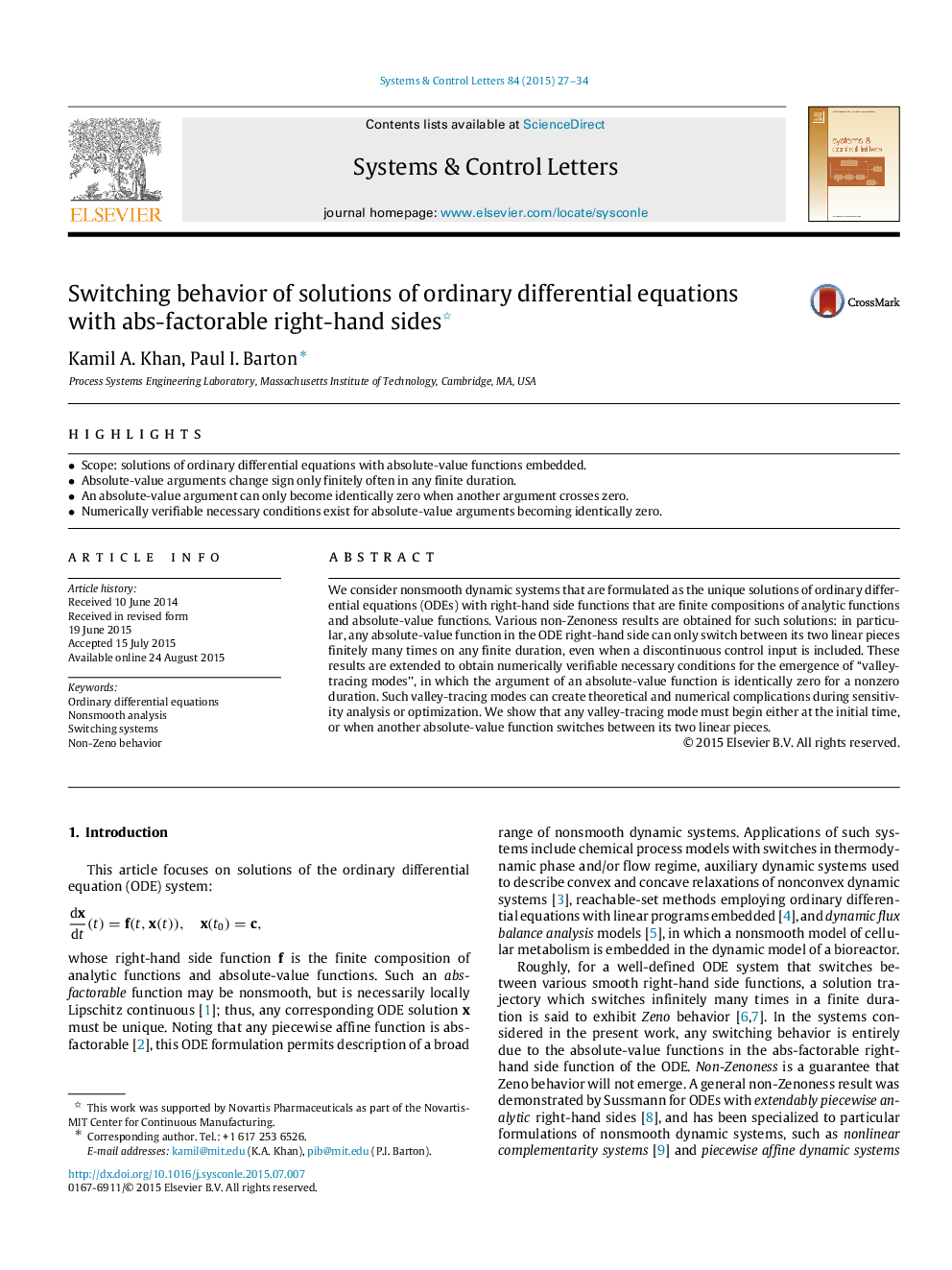| Article ID | Journal | Published Year | Pages | File Type |
|---|---|---|---|---|
| 750276 | Systems & Control Letters | 2015 | 8 Pages |
•Scope: solutions of ordinary differential equations with absolute-value functions embedded.•Absolute-value arguments change sign only finitely often in any finite duration.•An absolute-value argument can only become identically zero when another argument crosses zero.•Numerically verifiable necessary conditions exist for absolute-value arguments becoming identically zero.
We consider nonsmooth dynamic systems that are formulated as the unique solutions of ordinary differential equations (ODEs) with right-hand side functions that are finite compositions of analytic functions and absolute-value functions. Various non-Zenoness results are obtained for such solutions: in particular, any absolute-value function in the ODE right-hand side can only switch between its two linear pieces finitely many times on any finite duration, even when a discontinuous control input is included. These results are extended to obtain numerically verifiable necessary conditions for the emergence of “valley-tracing modes”, in which the argument of an absolute-value function is identically zero for a nonzero duration. Such valley-tracing modes can create theoretical and numerical complications during sensitivity analysis or optimization. We show that any valley-tracing mode must begin either at the initial time, or when another absolute-value function switches between its two linear pieces.
